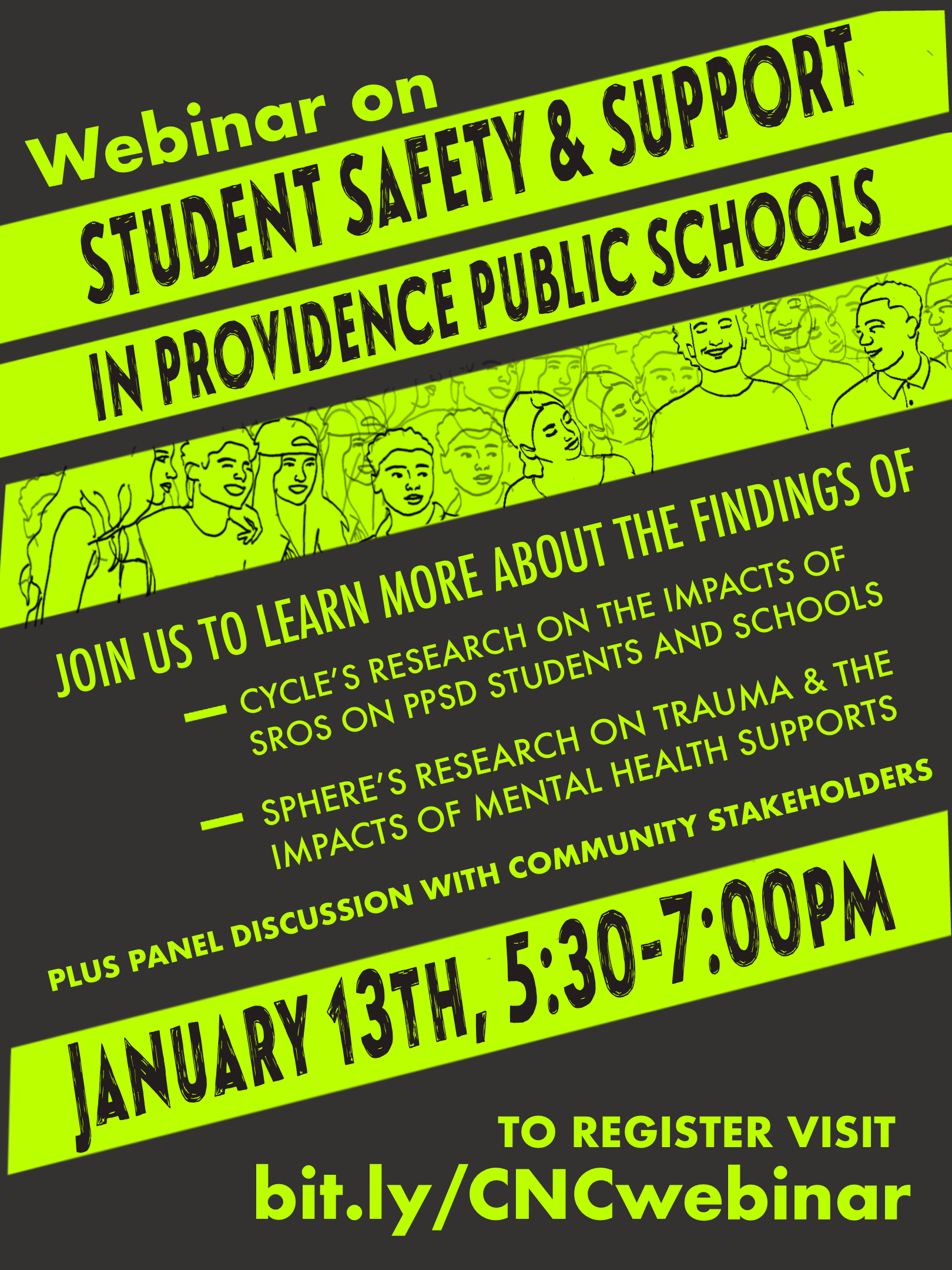CYCLE and SPHERE Release Research Reports Making the Case for Counselors Not Cops and Police-Free Schools
The Center for Youth & Community Leadership in Education (CYCLE) at Roger Williams University and the Social Policy Hub for Equity Research in Education (SPHERE) at Rhode Island College are proud to announce the publication of two independent, but related, research reports examining the educational experiences of young people in the Providence Public Schools.
Respectively, these recent studies highlight the importance of 1) removing police from schools, and 2) increasing funding for school-based mental health supports. Together, this research, done in partnership with the Providence Alliance for Student Safety (PASS), provides evidence and support for the growing community demands for both police-free schools and additional investment in student supports and services in Providence focused on mental health, social and emotional support, and restorative justice.
Some of the highlighted findings in these reports include:
From School Discipline and Student Safety in the Providence Public School District:
Black students are disproportionately represented in student arrests, making up 16% of overall PPSD enrollment and 30% of all student arrests. Black male students in particular are disproportionately represented. Black (non-Latinx/Hispanic) male students make up 8% of overall PPSD enrollment, and 19% of all student arrests. Hispanic/Latinx male and Black female students are also disproportionately represented in arrests.
Simply having uniformed, armed officers in schools makes some students – particularly students of color – feel unsafe. 72% of student survey respondents indicated that they were not comfortable with School Resource Officers having guns in their school.
While just under half of student survey respondents agreed or strongly agreed that their school had enough guidance counselors, those numbers decreased significantly when asked about other types of support workers. Only 16% agreed or strongly agreed that their school had enough social workers; 14% agreed or strongly agreed that their school had enough nurses; and 6% agreed that their school had enough mental health workers. No respondents strongly agreed that their school had enough mental health workers
From School-Based Mental Health Support for Rhode Island Youth: Policy Recommendations to Address Students’ Exposure to Adverse Childhood Experiences:
Within PPSD, 79% of students reported trauma in the form of high degrees of community disorganization and violence in their home neighborhoods. Nearly half (45%) reported feeling sad or depressed most days, and two in ten students thought about suicide within the last year. Historical and ongoing inequality and oppression leads to exposure to trauma and adverse events being higher for ethnically and racially minoritized youth.
There are not enough mental health professionals in RI schools: the overall student-school counselor ratio in RI was 392:1, and the ratio recommended by the American School Counselor Association is 250:1. The overall student-social worker ratio in RI was 686:1, and the ratio recommended by the School Social Work Association of America is 250:1.
Schools that employ more school-based mental health providers see improved attendance, lower rates of suspension and other disciplinary referrals, improved academic outcomes and better graduation rates.
Join us for a webinar on January 13th from 5:30-7pm to learn more about the results from these studies. First, CYCLE will present their research findings on the impacts of Student Resource Officers (SROs) on PPSD's youth and school climate. Second, SPHERE will present research on the high incidence of trauma and mental health symptoms among PPSD students, as well as data on how increasing school-based mental health supports leads to improved student outcomes and school climate. Following these brief presentations, a panel of community stakeholders will engage in a facilitated discussion about how to move forward to PPSD support students and promote a positive school climate. Audience members will be able to submit questions during a Q&A period.



